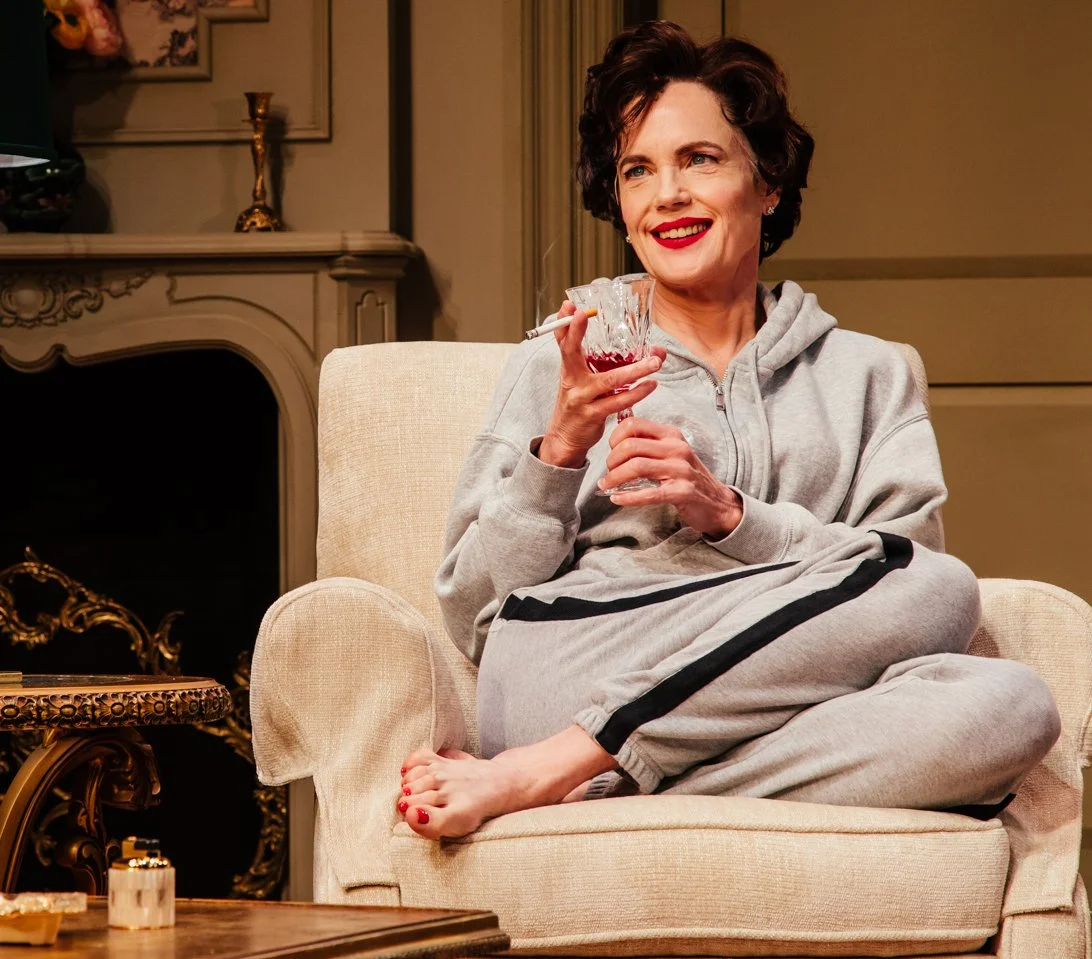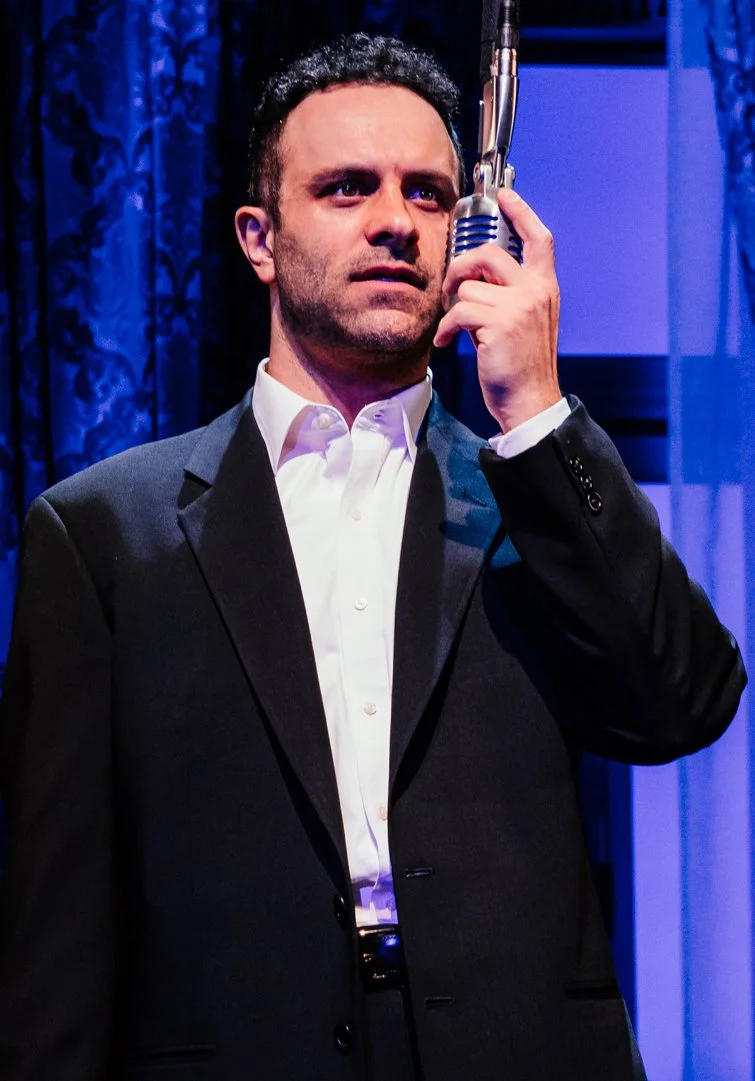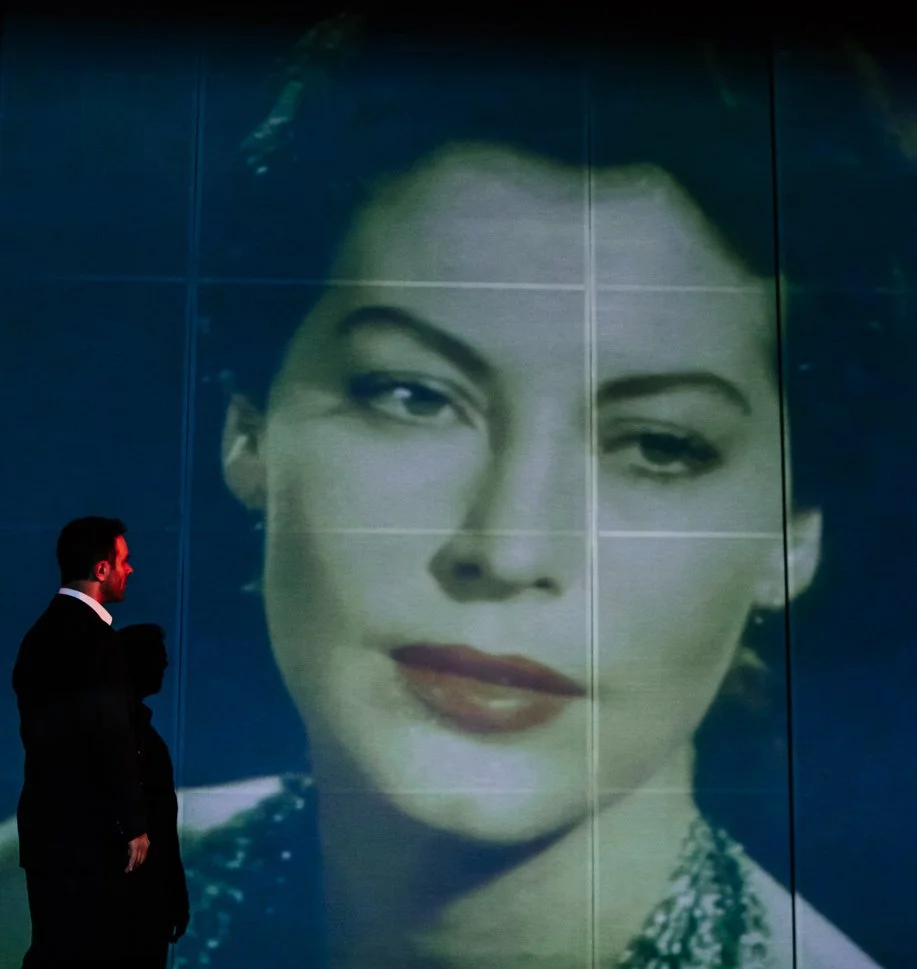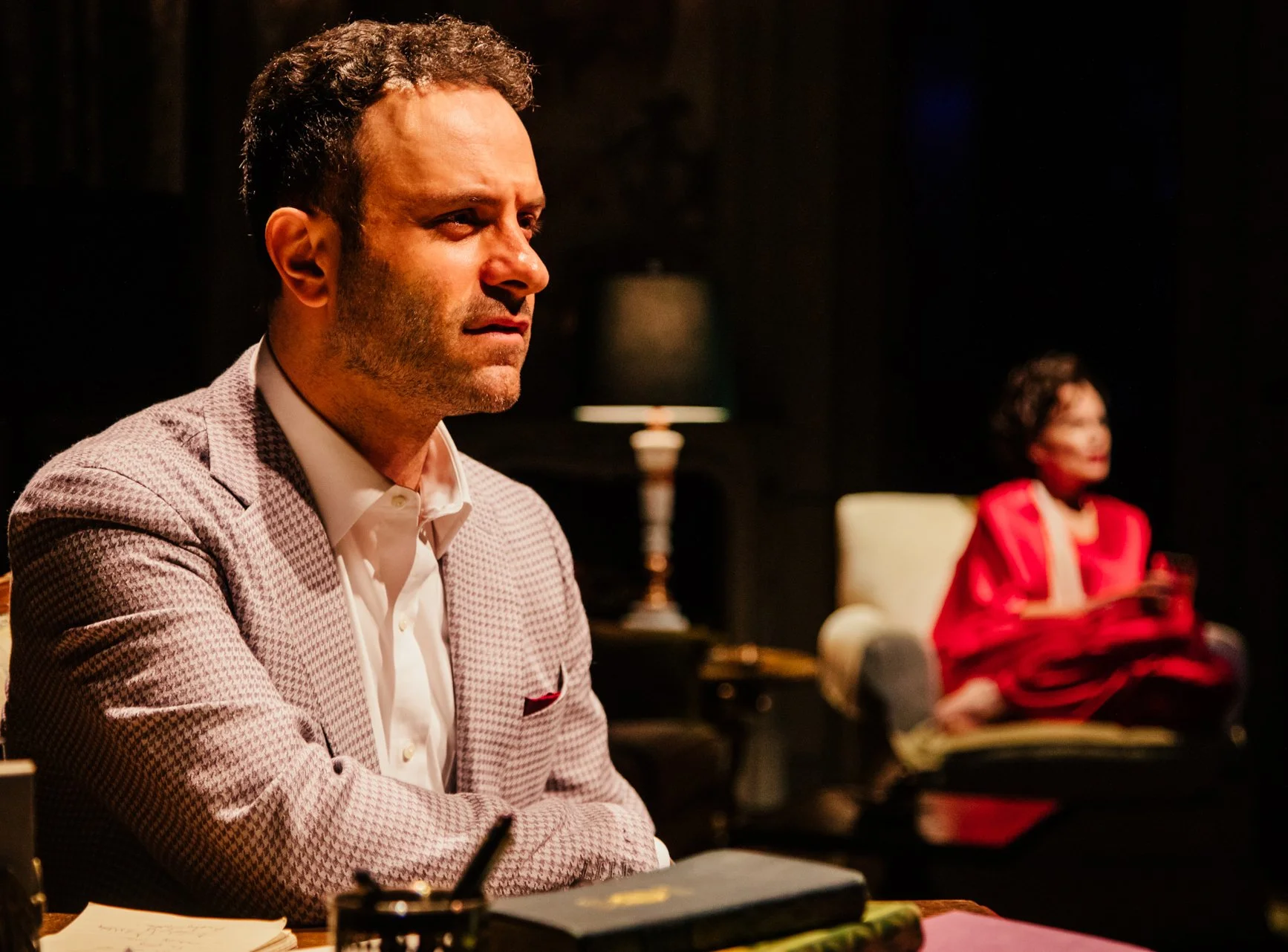Ava Gardner (Elizabeth McGovern) relaxes in her Knightsbridge apartment in Ava: The Secret Conversations, a biographical play that McGovern has written about the late film star’s last days, at New York City Center Stage I.
Elizabeth McGovern is spending the dog days of 2025 Off-Broadway in Ava: The Secret Conversations. Known in recent years as the beloved chatelaine of Downton Abbey, McGovern has written herself a role that’s the antithesis of Lady Cora Crawley. Her new play depicts the twilight of Ava Gardner, screen goddess from backwoods North Carolina who married both Mickey Rooney (the “biggest star in the world” when she met him) and mob-adjacent crooner Frank Sinatra.
Aaron Costa Ganis modulates from his principal role as writer Peter Evans to that of Frank Sinatra, Gardner’s third husband, in one of the memory interludes.
The play starts in the 1980s, with Gardner, in her sixties, recovering from a stroke. She’s plagued by memory lapses and blackouts, but mostly concerned that the stroke “ruined my looks and put paid to my career.” As embodied by McGovern, Ava is still beautiful, and she has sex, booze, and social intrigue to buoy her sagging spirits.
Ava is hunting for a ghostwriter; her publisher has recommended Peter Evans (Aaron Costa Ganis), a British journalist and aspiring novelist. “I gotta write a book, or sell the jewels,” Ava tells Evans. As she’s “kinda sentimental about the jewels,” she sees the book as her more viable option.
Peter, considerably younger than Ava, is a family man. With the cost of private school tuition on the rise, he’s ready to put his novel on ice and accept the ghostwriting job. He’s also powerfully attracted to Ava, despite the age gap (so put a pin in that “family man” business). The conversations in which the two engage are “secret” because Sinatra, an offstage character (still on the periphery of Ava’s life), once sued Peter and the BBC, which was then Peter’s employer, for alleged defamation. Though the lawsuit was settled years before, Sinatra harbors grudges and, presumably, has access to hit men.
Peter peers wistfully at an outsize vintage photograph of Ava in McGovern’s Ava: The Secret Conversations.
The play is based on a posthumously published book by Evans himself. As dramatist, McGovern sets up a credible conflict between her principals that keeps both their literary and personal relationships prickly. Peter is intrigued by the Hollywood of Ava’s youth and wants to plunge full-speed into details of her background, career, and three marriages. (In between Rooney and Sinatra, Gardner was married to bandleader Artie Shaw.) Ava, diminished by the stroke, finds details exasperating and resists Peter’s prodding. Her solution to their conflict: “Let’s just make it up.” That, she explains, is what the “publicity guys at Metro used to do … all the time.”
Peter is aghast at Ava’s insouciance. “You’ve got a great story,” he says. “We’re gonna tell it truthfully … make it real. We’re gonna actually go behind the scenes of the Dream Factory. … The culture that was created then permeates everything now. We’re gonna blow the lid off of it.”
As playwright, McGovern stresses Ava’s despair; as an actor, she imbues Ava with ample spirit. It’s a little difficult to give credence to the character’s cries of melancholy when the actress appears to be having the time of her life in the role. Ganis, whose part is a trifle larger than McGovern’s, holds his own against the seasoned star with whom he’s sharing a small stage. He acquits himself with particular distinction, in dreams and flashbacks, impersonating the husbands (especially Ol’ Blue Eyes, whose crooning he emulates mellifluously).
A team of notable designers has applied a high gloss to this small-scale production. David Meyer’s handsome scenic design includes a meticulous representation of Ava’s Knightsbridge abode, with intricate molding, high ceiling, and seedy grandeur. Amith Chandrashaker, who frequently designs for opera companies, contributes moody lighting that emphasizes the operatic aspects of Gardner’s saga and enhances the swift scene changes orchestrated by resourceful director Moritz von Stuelpnagel.
Peter and Ava engage in one of their late-night “secret conversations.” Photographs by Jeff Lorch.
As the action of the play moves from the 1980s to earlier times and from realistic narrative to memory and dreams, the London flat seems to disappear (it doesn’t actually do so), and Alex Basco Koch’s beautiful projections draw the audience into Gardner’s memory and Evans’s fantasies about the past. Cricket S. Myers supports the script’s time migrations with music of Ava’s youth. Toni-Leslie James’s gowns for McGovern capture the glamour of Old Hollywood; her distinctly unglamorous 1980s leisure-wear speaks to the profundity of Ava’s late-life disappointment.
McGovern’s brief, lightweight drama steers clear of salaciousness, but it’s not especially edifying. This is celebrity dish that’ll check the culture box for impatient tourists who feel a New York City vacation requires some art, but just a dab.
Ava: The Secret Conversations runs through Sept. 14 at New York City Center, Stage 1 (151 W. 55th St., between Sixth and Seventh avenues). Evening performances are at 7 p.m. Tuesday through Saturday; matinees are at 2 p.m. Saturday and Sunday. For tickets and information, visit the City Center box office or click here.
Playwright: Elizabeth McGovern
Direction: Moritz von Stuelpnagel
Scenic Design: David Meyer
Costume Design: Toni-Leslie James
Lighting Design: Amith Chandrashaker
Sound Design: Cricket S. Myers
Projection Design: Alex Basco Koch






